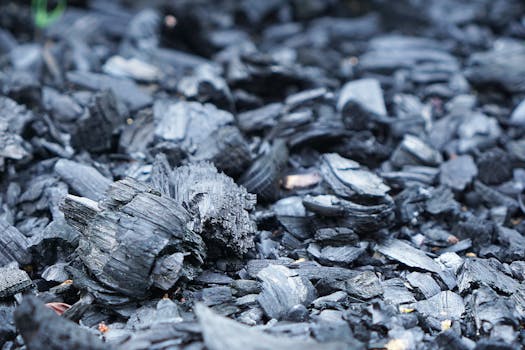Introduction to Biochar and Soil Remediation
Biochar, a carbon-rich material produced through the pyrolysis of organic matter, has gained significant attention in recent years for its potential in environmental remediation, particularly in the absorption of pollutants from contaminated soils. This innovative approach not only addresses soil degradation but also contributes to carbon sequestration, making it a dual-purpose solution in the fight against climate change and soil pollution.
Understanding Biochar’s Mechanism of Action
The effectiveness of biochar in absorbing pollutants can be attributed to its unique physical and chemical properties. These properties include:
- High Surface Area: Biochar has a porous structure that provides a large surface area for adsorption, allowing it to capture various contaminants.
- Functional Groups: The presence of functional groups such as carboxyl, hydroxyl, and carbonyl enhances its ability to bind with pollutants.
- Stability: Biochar is resistant to decomposition, which means it can persist in the soil for extended periods, providing long-term remediation benefits.
Types of Pollutants Absorbed by Biochar
Biochar has shown promise in absorbing a wide range of pollutants, including:
- Heavy Metals: Biochar can effectively immobilize heavy metals like lead, cadmium, and arsenic, reducing their bioavailability and toxicity.
- Organic Contaminants: It can adsorb organic pollutants such as pesticides, herbicides, and polycyclic aromatic hydrocarbons (PAHs).
- Nutrients: Biochar can also retain essential nutrients, improving soil fertility while simultaneously reducing nutrient leaching.
Case Studies Demonstrating Biochar’s Efficacy
Numerous studies have highlighted the effectiveness of biochar in remediating contaminated soils. Here are a few notable examples:
1. Heavy Metal Remediation in China
A study conducted in China examined the use of biochar derived from rice husks to remediate soils contaminated with lead and cadmium. The results showed a significant reduction in the bioavailability of these heavy metals, with lead levels decreasing by up to 80% after biochar application. This study underscores biochar’s potential as a sustainable solution for heavy metal contamination.
2. Organic Pollutant Absorption in the United States
In a field trial in the United States, researchers applied biochar to soils contaminated with PAHs from industrial activities. The findings revealed that biochar reduced PAH concentrations by approximately 50% over a six-month period. This case illustrates biochar’s ability to mitigate organic pollutants effectively.
3. Nutrient Retention in Agricultural Soils
A study in Brazil focused on the impact of biochar on nutrient retention in agricultural soils. The results indicated that biochar not only improved soil structure but also enhanced the retention of nitrogen and phosphorus, leading to increased crop yields. This highlights the dual benefits of biochar in both remediation and agricultural productivity.
Challenges and Considerations
While biochar presents a promising solution for soil remediation, several challenges must be addressed:
- Feedstock Variability: The properties of biochar can vary significantly depending on the feedstock used and the pyrolysis conditions, affecting its effectiveness.
- Application Rates: Determining the optimal application rates for different contaminants and soil types is crucial for maximizing biochar’s benefits.
- Regulatory Frameworks: The lack of standardized regulations regarding biochar production and application can hinder its widespread adoption.
Conclusion: The Future of Biochar in Soil Remediation
Biochar represents a promising and innovative approach to the remediation of contaminated soils. Its ability to absorb a wide range of pollutants, coupled with its benefits for soil health and fertility, positions it as a valuable tool in environmental management. As research continues to evolve, addressing the challenges associated with biochar application will be essential for maximizing its potential. With the right strategies and regulatory support, biochar could play a pivotal role in restoring contaminated lands and promoting sustainable agricultural practices.
